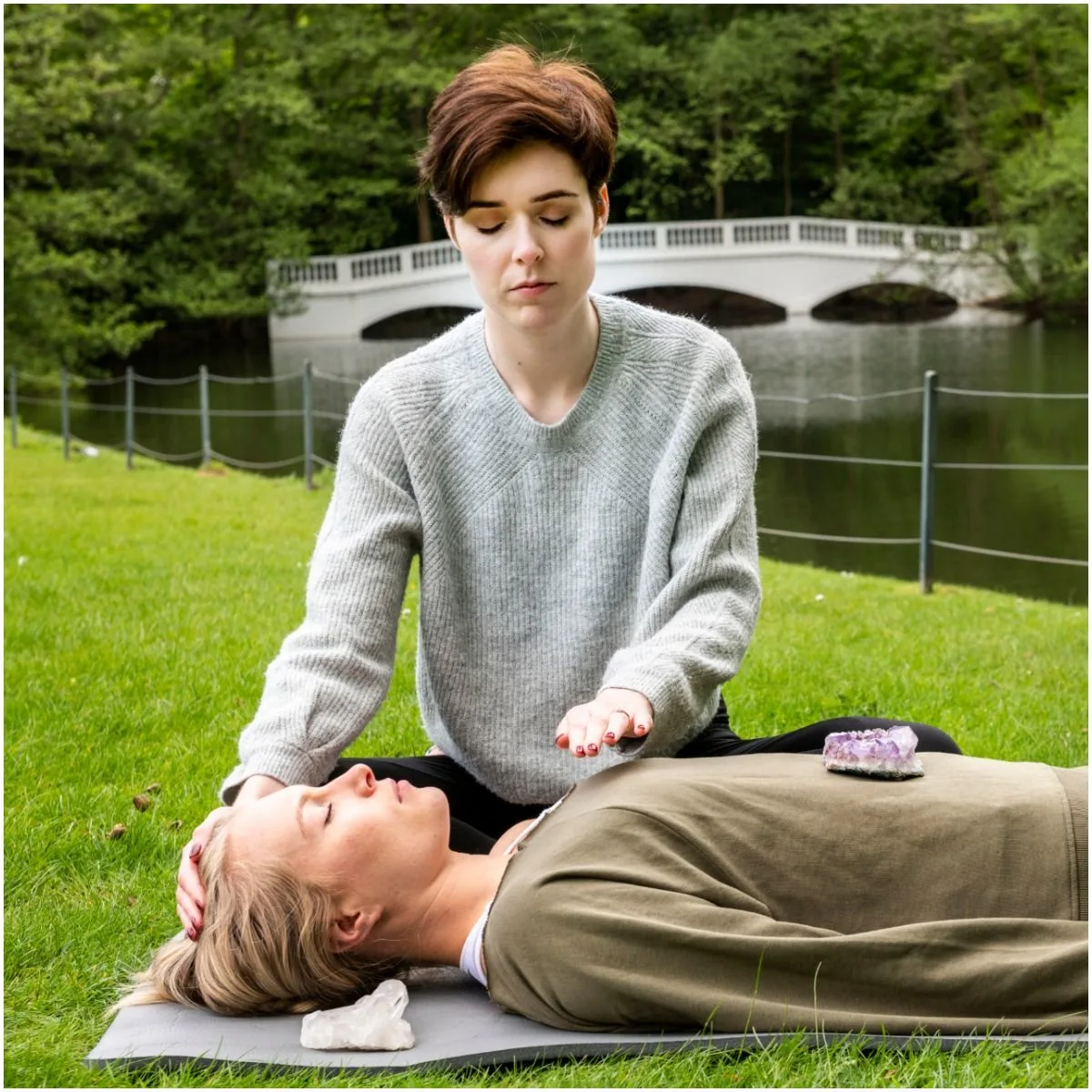What are the 5 principles of Reiki that promote wellness?
A long time ago, Reiki was a natural healing technique in the East, one of the oldest and most effective methods of maintaining a healthy body.
Some historians believe that the technique appeared 8,000-11,000 years ago, while others think that it dates from the beginning of the world.
The word Reiki combines two syllables, ”Rei,” meaning universal, cosmic, divine, spiritual, vital, unconditional love, and “ki”- meaning energy, omnipresent vital force.
Mikao Usui, the founder of Reiki, has reached the level of knowledge and personal evolution necessary to find the answer to his questions, starting with the biblical method by which Jesus healed his contemporaries and through Buddhist texts to which he had access.
One day, Mikao told his friends that he planned to fast and meditate for 21 days near a mountain and that if he didn’t return after this period, they should come and take his lifeless body.
He went to the mountain, taking 21 stones with him, to use them to count the days.
Every day, he threw a stone. On the 20th day, as nothing was happening, while throwing the last stone, he said: “Either I get an answer tonight, or it all ends here.”
During that night, Usui saw a ball of light that, after hitting him in the forehead, took him on a journey during which he saw colored spheres, which contained the symbols of Reiki.
These were the same symbols from the Tibetan writings that he was studying, but couldn’t understand.
At that moment, everything became clear.
The importance of Reiki principles
Reiki teachings are few, and they all appear to be essential, but the most important aspect is the practice of the Reiki Principles (Gokai).
I was somewhat confused when I read in a book the idea that Reiki wouldn’t be as effective without its Gokai principles. The Five Principles of Reiki are actually the map of this spiritual path. Reiki, without its principles, would be like a tiger without claws.
The practice of the five Reiki precepts
Even though these principles may seem trivial for a beginner, they become extremely valuable as the practitioner begins their practice.
Also, respecting the principles involves a certain ability to redirect, transform, and refine disharmonious energies into something positive, a skill that develops along with the practice of Reiki. Without this transmutation, we can experience imbalances and repressions that will bring us back to where we started.
There were many translations and interpretations of these principles and questions, like: How is it more efficient to use the principles of Reiki in Japanese or English (native language)?
Personally, I think it is better to start using them in our native language, as it is closer to our soul, to understand them properly and experience them accordingly.
In time, we may feel drawn to use the principles in Japanese. It is true that a certain object (or even an idea, prayer, etc.), which belonged to a spiritual person, can help you get connected to her life, feelings, and experiences. The calligraphy of principles, their pronunciation in Japanese can be such anchors.
Another dilemma is using them with negation. Even if it is said that our subconscious knows no negation, practice shows that these principles work this way as well. However, I think that using them in a positive way would be much better, and, in this regard, Sensei Hiroshi Doi provides such a version.
These principles, as written by Mikao Usui:
Kyo dakewa – Just for today
Ikaru na – Do not be angry
Shinpai suna – Do not worry
Kansha shite – Be grateful
Gyo o hagame – Do your duties
Hito ni shinsetsu ni – Be kind to others
#1 Do not be angry
Anger and nervousness are useless states. Anger shows us that things do not evolve according to our expectations, but it is best to let the anger go away immediately.
You must realize that you are in charge; you set your life’s rules and limits. Enemies are actually your real friends because they show you your weaknesses and help you change your negative behavior. If you manage to intercept your feelings, to understand how and why they occur, their power over you will decrease.
#2 Do not worry
Worry is the fear of change. People are capable of feeding their fears with huge amounts of energy, spending a lot of time overwhelmed by fear, so that they later resign.
If they were more relaxed, they would realize that those difficult moments are fleeting. It’s a shame to cry for yesterday and fear tomorrow. Instead, try applying this principle: “Just for today, be aware” of life and see that it’s not the end of the world.
#3 Be grateful
Difficulties are nothing but trials that occur in your life, and they are precious gifts to be enjoyed. If something happens contrary to your expectations, you’re the one who sowed the seeds of that situation.
Every day is a new beginning; every day brings a new challenge. Learn to respect and receive everything that is given to you, and you will always have what you need.
There is no good and bad because light and shadow are both found everywhere; whether something is considered good or bad depends only on your perception. Everything we discover with love is still love.
READ MORE: Tamarasha Symbol – The Balancing Symbol
#4 Do your duties
Work can be of two types: external work – for which you study and receive specific training, and you usually carry it for the benefit of others; inner work – getting in touch with yourself, developing the ability to work with yourself on some aspects that need to be modified or changed internally, so that the healing process can occur.
Both aspects are equally important, and neither should be neglected at the expense of the other. Both are man’s gifts to the Creator. Honesty results from the purity and openness of the heart when working.
To be honest, you have to start with yourself first because when you have a proper relationship with yourself, you can expand this concept without any difficulty with the people around you.
READ MORE: What Is The Meaning Of Hon Sha Ze Sho Nen?
#5 Be kind to others
We all have the same origin, and it is obvious that all manifestations of life are related to one another. Everything in the Universe is energy, and this energy creates the world, every form, and matter that shapes our reality. Existence is a matter in constant motion – it creates, manifests, changes, and transforms.
All that is beautiful is the beginning of the beautiful. But we must not forget that we can love others only if we find the miracle within ourselves.
At that moment, the world will reflect unconditional love on you.
Reiki principles are eternal-life teachings that help us get around more easily in our daily lives. They are not some moral rules in the sense of “orders” or “bans.”
“Just today” is a reference to the fact that we have to live in the present moment, as spiritual reality only knows the eternal present.
Images credit – Shutterstock & Getty Images
READ THIS NEXT: Raku Reiki Symbol Meaning


Constantin
Sunday 12th of July 2020
Hi
Can tuning, Reiki initiations be done remotely, online? What is the reality really? Thank you very much.